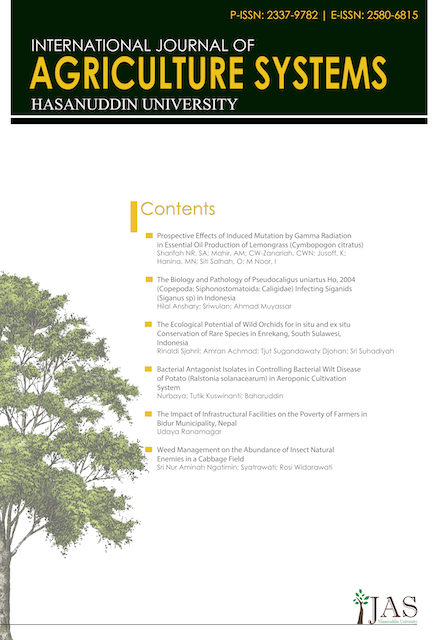Abstract
Chili pepper (Capsicum frutescens L.) is an economically important horticultural crop, but its productivity in Indonesia has declined due to soil fertility degradation, excessive use of inorganic fertilizers, and unfavorable climatic conditions. This study evaluated the individual and combined effects of plant growth-promoting rhizobacteria (PGPR) and corn cob biochar on the growth and yield of chili pepper. A field experiment was conducted from December 2022 to May 2023 at Hasanuddin University, Makassar, Indonesia, using a split-plot design with three levels of biochar (0, 7.5, and 15 t ha⁻¹) and three concentrations of PGPR (0, 10, and 20 g L⁻¹). Data were analyzed using ANOVA followed by LSD at α = 0.05. Results indicated that neither PGPR nor biochar alone had significant effects on most growth parameters. However, their interaction significantly enhanced yield-related traits. The combination of 15 t ha⁻¹ biochar with 20 g L⁻¹ PGPR (M2P2) produced the highest fruit number (69.17 fruits plant⁻¹), fresh fruit weight (72.30 g plant⁻¹), and yield (3.62 t ha⁻¹). These findings demonstrate the synergistic role of biochar and PGPR in improving chili productivity and highlight their potential as eco-friendly inputs for sustainable chili cultivation.
This work is licensed under a Creative Commons Attribution-NonCommercial-ShareAlike 4.0 International License.


